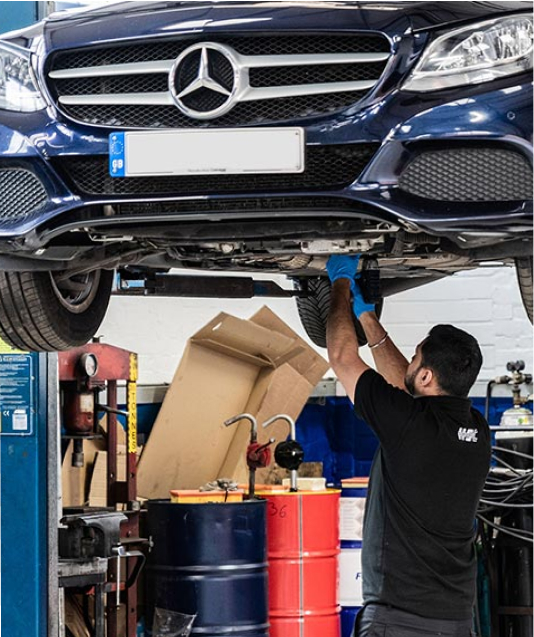Regular car maintenance is essential to ensure your vehicle runs smoothly and lasts for years to come. One of the most important aspects of car maintenance is logbook servicing. A logbook service is a manufacturer-recommended service that follows the specific requirements outlined in your car's logbook. This type of servicing helps maintain the vehicle's warranty, keeps it running at optimal performance, and increases its resale value. In this article, we will dive into what logbook servicing involves, why it's important, and provide answers to some frequently asked questions. Plus, we'll share a customer testimonial to highlight the benefits.
What is Logbook Servicing?
Logbook servicing refers to a scheduled maintenance routine that follows the manufacturer's guidelines outlined in your car's logbook. This service includes checks, repairs, and replacements of various car parts based on the manufacturer's recommended service intervals. By sticking to the prescribed schedule, you ensure your car remains in good condition and its warranty remains intact.
Typically, a logbook service includes:
- Oil changes
- Brake checks
- Air filter replacement
- Fluid level checks
- Tyre inspections
- Battery health checks
- Engine diagnostics
- Timing belt or chain inspection (as per schedule)
Logbook servicing can be performed by a licensed mechanic or an authorized service center. It's essential that the service is done according to the manufacturer's recommendations to ensure your vehicle's longevity.
Why is Logbook Servicing Important?
-
Maintains Warranty: Many car manufacturers require logbook servicing to be done to maintain the warranty. If you fail to adhere to the service schedule, you could risk voiding your warranty, leaving you without coverage for repairs and parts replacements.
-
Ensures Optimal Performance: Regular logbook servicing ensures your vehicle is running at peak performance. By addressing potential issues early on, you avoid unexpected breakdowns and costly repairs in the future.
-
Improves Resale Value: A well-maintained vehicle that has a complete service history is worth more when you decide to sell or trade it in. Buyers often prefer cars that have been regularly serviced according to the manufacturer's recommendations.
-
Cost-Effective in the Long Run: Although regular servicing involves upfront costs, it can save you money in the long term by preventing major issues from developing. Timely oil changes and part replacements can extend the life of your engine and other vital components.
-
Peace of Mind: Having your car serviced according to the manufacturer's recommendations gives you peace of mind that your vehicle is in good hands. It ensures that all necessary parts are inspected and maintained, reducing the risk of unexpected failures.
The Logbook Servicing Process
-
Initial Inspection: Your mechanic will begin with a thorough inspection of your vehicle, checking for any obvious issues or signs of wear and tear.
-
Scheduled Services: The mechanic will perform all services and checks as outlined in your vehicle's logbook. This may include tasks such as changing the oil, replacing air filters, and inspecting the brake system.
-
Record Keeping: After completing the service, the mechanic will document all the work performed in your car's logbook. This record is crucial for maintaining the car's warranty and resale value.
-
Test Drive & Final Checks: After servicing, a test drive is often done to ensure the car is running smoothly and that all systems are functioning correctly. Any final adjustments are made before handing the vehicle back to you.

Frequently Asked Questions (FAQs)
1. How often should I get a logbook service?
The frequency of logbook servicing depends on the manufacturer's guidelines for your specific vehicle. Most vehicles require servicing every 6,000 to 15,000 kilometers, or every 6 to 12 months. Check your car's logbook for specific recommendations.
2. Can I get my logbook service done anywhere?
While you can technically get a logbook service done at any service center, it's best to choose a licensed mechanic or an authorized dealer who is familiar with the manufacturer's requirements. This ensures the service is done correctly and the warranty remains valid.
3. Will logbook servicing void my warranty if done by an independent mechanic?
No, as long as the servicing is done according to the manufacturer's specifications, you can get your car serviced by an independent mechanic or service center without voiding the warranty. Just ensure they use the right parts and follow the service schedule.
4. Is logbook servicing expensive?
Logbook servicing may cost more than basic servicing due to the specific parts and checks required. However, it's important to consider this as an investment in your car's longevity and performance, which can save you from expensive repairs later on.
5. Can I perform my own logbook servicing?
While some minor log book service, like checking the oil, can be done at home, logbook servicing often involves technical knowledge and specialized equipment. It's generally recommended to have it done by a professional to ensure everything is checked and replaced as needed.
Testimonial
Tom J. – Owner of a 2018 Toyota Corolla
"I've always made sure to keep up with my logbook servicing, and I'm so glad I've done so. My mechanic keeps everything on track, and I've never had any major issues with my car. It runs like new even after several years, and I know that the service history will help me get a good price if I decide to sell it. I wouldn't trust anyone else with my car's maintenance!"
Conclusion
Logbook servicing is one of the best ways to maintain your vehicle's health, extend its lifespan, and ensure it operates at peak performance. By adhering to the manufacturer's recommended service schedule, you can keep your car in top shape while preserving its warranty and resale value. Whether you're due for your next service or looking to establish a regular maintenance routine, make sure you choose a reliable and experienced mechanic to handle your logbook servicing needs.





